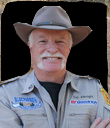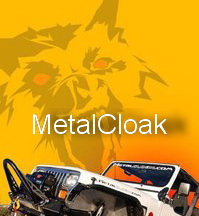|
|
Of Boards and Bureaucracies By Del Albright People are getting tired of slow moving bureaucracies in government. Tolerance for waiting in line, on-hold phone numbers, being told, “I’ll get back to you,” press one for this or that language, and other such bureaucratic behavior is at an all time low in my experience. This applies as well to our recreational clubs and organizations. We want change. We want something different. And we want it now!
Nowhere is this more prevalent than in starting a new club or organization. I hear often the questions of whether to just be a virtual club, or to incorporate, or to be non-profit, or to just be left alone. And why are all these new “Friends” type groups popping up around the country? Where does one start? |
Of Boards and Bureaucracies (con't)
I hope in this short article to give you some high lights of what I’m learning from Boards, clubs and bureaucracies around the USA. I hope also to help you avoid becoming a bumbling bureaucracy that we all dread – the never-get-anything-done kind -- unless we’re going to form a committee and study the issue for a few years. :) And if you’re a part of one, perhaps you can find some help here for getting out from under the bumble and back to business!
First, we need to accept the fact that we need large organizations on our side in motorized recreation. And yes, these large groups need to be somewhat bureaucratic. Larger national and regional organizations have the clout and credibility to be our voice (and legal team) at the national level. They are doing it right. They have policies, procedures, By Laws and Articles of Incorporation -- rules of the road, shall we say. Ok, so be it. But we need them.
Secondly, the world is run by those who show up. I’m talking about being part of the solution; not just someone who articulates the problem. It’s critical that we all become educated on the subject of access. Get in the game. Take a job in a leadership or project role. Be a change agent. Or at least help someone or some group step up and be that change agent in your behalf. But we all must be part of something, maybe even a bureaucracy, if we want to see some change happen.
Third, if you have the chance, try to build a team in your endeavor, rather than a pure bureaucracy. There is a huge difference between a bureaucracy and a team. A bureaucracy sometimes sees only obstacles in the way of getting anything done; a team sees successes, and plans a route to get there.

Board meetings; where Bureaucracy and Teamwork have come together well.
National and regional leaders combine the team concept with the necessities of bureaucracy – rules, procedures, policies, etc. Not all government agencies follow this idea of being a team while also having to be a bureaucracy. That is where we OHV types get bogged down.
Pure bureaucracies are always planning for something, but usually very slow to accomplish anything. Teams, on the other hand, are about action – getting something done. This is a distinction we sometimes lose track of. We need more teams and less bureaucracy in our recreational sports – even if those teams look like Boards of Directors or Officers or whatever. And if we’re going to be a bureaucracy, let’s be a good one! Let’s get something done for the good of our cause and embody the team spirit.
In my travels around the county, I see that the art and science of team-building is neglected in volunteer organizations for the most part. We build our bureaucracies and work on our clubs, but I don’t see many teams being built. On the other hand, a change is in the wind. It is called Friends type groups. These are many times based on a true team spirit.
A “Friends” group is an informal or formal coalition of like-minded recreationists, usually of mixed use interests, banded together to save a trail or recreation area. There is no stronger force to reckon with than local interests committed to an area. Big organizations rely on local recreationists to be the catalyst to change, and then the big orgs can support the locals. “Friends” groups are one way to do this.
Naturally, a club is a great start to getting involved in your local area. If you don’t have one you can start one. There is lots of help to do that (references below). But even stronger is to build a coalition of clubs, groups and individuals dedicated to one area, one Forest, one trail. Set aside the bylaws and bureaucracies (if only temporarily), build a team, and form a Friends type group bonded in unity to save a recreation or riding area. It works miracles.
Friends groups are many times multiple-use (several different recreational types like four-wheelers, quad folks, and dirt bikers all working together). Friends groups quickly build strength by sharing responsibility and allowing all interested parties to come to the table. And big organizations and national groups can support Friends groups as they develop and grow. Entire National Forests or BLM Districts can be adopted. Private lands can be better managed to suit all visitors. It works!
With this in mind, I’d like to give you some insight based on what I’ve seen around the country, and answer a few bureaucracy questions about forming a new group.
Should you become a non-profit? Not necessarily, unless you really want to do some big time community benefit (charity) work and go through the paperwork and hassle of IRS stuff. On the other hand, this makes you a tax deduction to donors if you do it right. There are other categories you might fit in better.
Should you have a Board of Directors and Officers? Yes, if you’re starting a club; not necessarily if you’re starting a Friends group. However, if you don’t have this much bureaucracy for your Friends group, you should have a separate (parent) one that supports you like the Rubicon Trail Foundation that supports the Friends of the Rubicon (see below).
Should you be an IRS c.3 or c.7 or something else? Yes, if you’re going to incorporate and go non-profit, you need to be one of these. It doesn’t mean you can’t have money; it just means you can’t distribute your money as assets to your corporation. It’s a long story that you can read more on below. But if you’re just going to incorporate and not do any tax stuff or non-profit stuff, this has no meaning to your group.
No matter which route you choose for your area, the important thing is to choose wisely and get in the game right the first time. Do the homework and make the choices based on keeping your volunteers working with you, for the cause!
Big clubs are more like businesses these days and things like insurance and liability policies, safety issues, delegate voting, all play into how you set up your group. I like to say, less is better. But do enough to avoid problems down the road.
So where do you turn for more help? Here are some links and web sites I have found to be extremely helpful and full of good info to help you. You’ll also find links to other great organizations and groups on these sites.
www.ufwda.org (United Four Wheel Drive Associations) . 4wd specific help.
www.nohvcc.org (National OHV Conservation Council). Ask for the Club Starter Kit.
www.muirnet.net (John Stewart, CA4WDC Consultant). Look for Your Club as a Business links.
www.<yoursecretaryofstate>.gov. (Secretary of State) for more on incorporating.
www.delalbright.com/Articles/coalitions.htm. (Del Albright’s Site) more on Coalition building.
www.rubicontrail.org.For more about the Rubicon Trail Foundation
###
|






